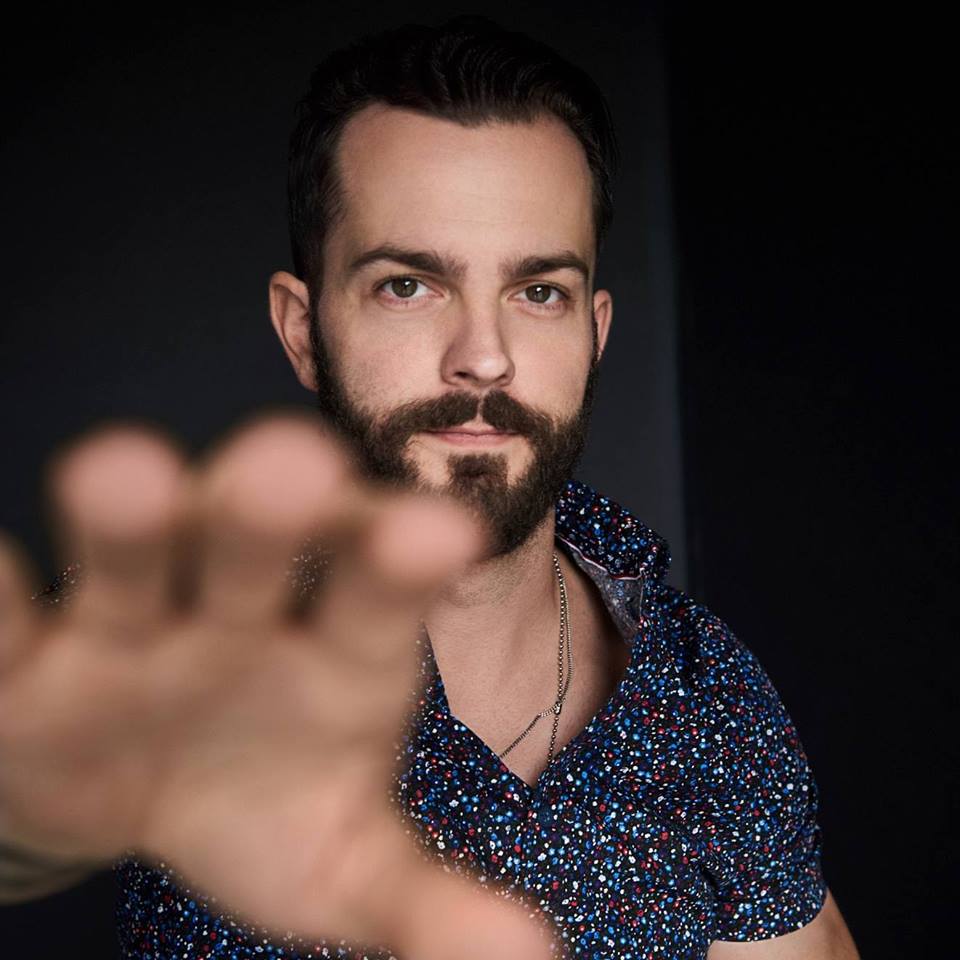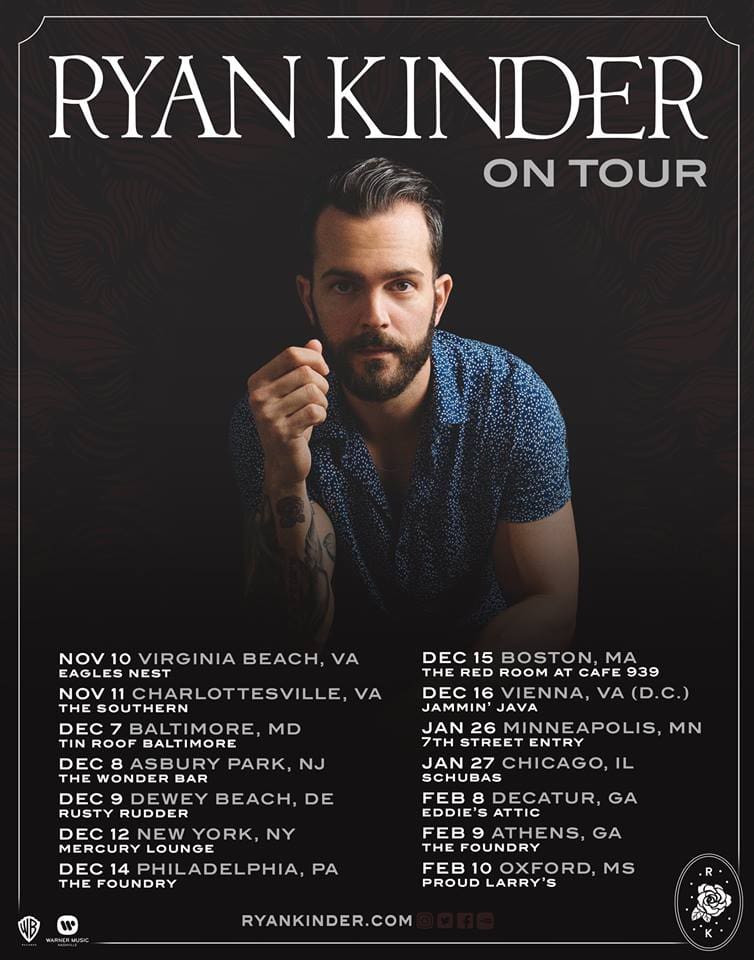
Want to know the power of the internet?
How about being a musician who’s been able to get millions of streams on their music without releasing a full-length album?
Ryan Kinder knows about this.
The Warner Bros. Records inked country singer has taken his tales of heartbreak, his uncanny ability to create a hook, and his passion for music and turned it into a career with a gargantuan upside.
We recently sat down with the singer to talk about his career as he gets set to play Wonder Bar tonight in Asbury Park, NJ.
Without even having a record out yet, your songs have millions of streams to date. What do you think it is about your music that has grabbed people so much that they want to listen to you, even though your catalog (for now) is a handful of songs?
It’s impossible to pinpoint intrinsic value from person to person from song to song. I believe I’ve been lucky enough to tap in to a few emotions that have resonated with the wonderful people that listen to my music. And I’m very grateful for those people.
Who inspired you musically growing up?
I’ve always believed that inspiration should be a smorgasbord, a food reference because I love food, of different styles and varieties of music. But the beginning of my inspirational journey of music truly started with John Mayer. Others include Marc Broussard, Jackson Browne, Al Green, Eric Clapton, Albert King, The Allman Brothers and so many more.
What is it about country music that drew you to it, and made you decide this was the type of music you wanted to dedicate your career to?
Nashville a bunch of Mutts. We are a haven for artists with mixed musical breeding. Sometimes the rock side of us comes out a little more in some. Sometimes the twang is seen more in others. We are all sprinkled with Gospel and the church. It adds up to a beautiful place to create music. This naturally creates pockets and sub genres. There’s so much more to country than what most think of.
Reading your bio on the Grand Ole Opry website, there’s a quote from you saying “I always gravitate towards heartbreak” in your songwriting. Can you explain why you gravitate towards this?
Heartbreak and morbidity are some the heaviest emotions to invoke through song. It’s songs with that content I normally gravitate towards when enjoying music myself. Such intense feelings take you to a place in your past or place in the future and that journey of yourself through song is incredible thing.
In that same piece, you said, “I want people to have memories about when they heard my song for the first time. I want to make a soundtrack for people’s lives.” I think this is absolutely awesome — but how do you go about attaining this? Does setting the bar this high motivate you, or do you find that sometimes it’s frustrating because you want to create an unforgettable song each time your write a new one?
I can’t remember who said it but they said ‘in my failure to sound like my idols I found myself’ and I believe trying to write, sound and generally emulate my idols is the start to a path to create a record that become someone’s soundtrack of their life. I think striving to be the best artist I can be in putting out the best music I can is the only way to attempt to attain that.
You performed at the Grand Ole Opry for its 92nd birthday — can you talk about performing at such a hallowed venue, and how you got invited to perform?
’Hallowed’ is the best descriptor for what the Opry is. The men and women who paved the way for every artist we hear on the radio today have stepped into that circle and I’ve tried to live up to its nature. I think the most wonderful thing about the operation is they don’t limit themselves to what everyone sees as pop country. They are never afraid to steer left of center. Having some of my favorite artists like Jason Isbell, Sturgill Simpson and James Brown, which is just cool, perform there is very inspiring.
You did a “deconstructed” version of “Still Believe in Crazy Love” which was really cool — what was the inspiration behind this, and can expect more deconstructed versions of your music in the future?
One of my favorite albums is Gavin Degraw’s Chariot. He did a “stripped” version of that album which I think rivals the original. I wanted to do something that was similar but not completely acoustic driven. I wanted different compositions of songs and different instrumentation. There most definitely will be more installments to the deconstructed series.
You’ve opened for some iconic acts — who taught you the most (directly or indirectly) in your career?
There are many, many stories I could tell you about teachings of artists I’ve opened for but two guys stand out. Tim McGraw was one of the kindest I’ve ever met. He took time, a lot of time, out of his day to sit and talk with me. It was incredible. Zac Brown has this unbelievable connection to his fans. He is so endearing to them in every aspect of his career. Something I strive for daily.
What can we expect from your full-length record from both a writing and from a musical standpoint? Will it be a continuation of what we’ve heard already, or are there some musical/lyrical tricks up your sleeve?
I don’t want to say too much too early because I’m still writing for the album and am excited about what’s coming together. I can say I am proud of this direction and ecstatic about releasing it.
What do you have planned for the rest of 2017, and what are you most looking forward to in 2018?
We will be on tour until February then we will take a break to finish this album. I’m really looking forward to diving head first into the completion.


